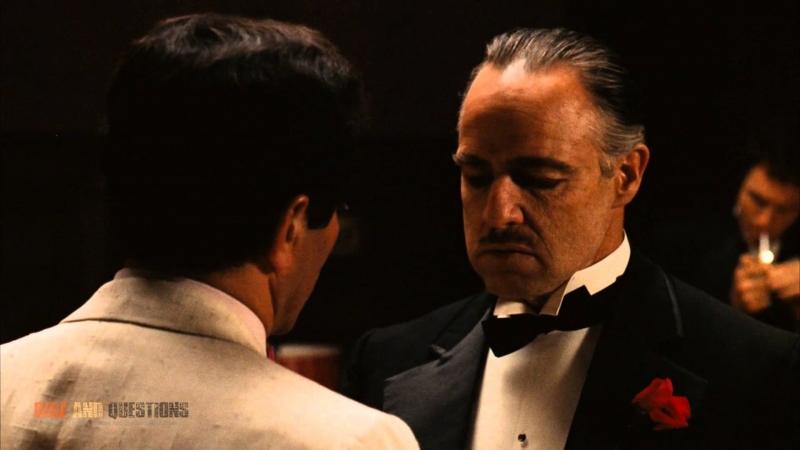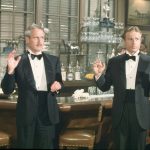“The Godfather” (1972 & 1974)

Francis Ford Coppola’s “The Godfather” (1972) and its sequel “The Godfather Part II” (1974) stand as towering achievements in American cinema, defining the gangster genre and setting a benchmark for storytelling and character development. Adapted from Mario Puzo’s novel of the same name, these films delve deep into the intricate world of organized crime while exploring themes of power, loyalty, family, and betrayal.
Set in post-World War II America, “The Godfather” chronicles the saga of the Corleone crime family, led by the powerful patriarch, Don Vito Corleone, portrayed with iconic gravitas by Marlon Brando. The film opens with a lavish wedding scene, which serves as a microcosm of the family’s influence and the loyalty they command from their community. From the outset, Coppola establishes a world where respect and honor are paramount, and where violence is a means to maintain order and supremacy.

Central to the narrative is the transformation of Michael Corleone, played by Al Pacino, from a reluctant outsider to a ruthless leader. Initially distant from the family business, Michael is drawn into the underworld following an assassination attempt on his father. As the story unfolds, Michael’s evolution from a war hero with a moral compass to a calculating crime lord epitomizes the tragic arc of the film. His descent into darkness, driven by a desire to protect his family and assert dominance, becomes a compelling exploration of moral corruption and the consequences of power.
Beyond its gripping plot, “The Godfather” is a character-driven drama that excels in its portrayal of complex relationships and conflicting loyalties. The dynamics within the Corleone family are nuanced and layered, depicting the tensions between tradition and modernity, loyalty and betrayal. The performances are stellar across the board, with Brando’s subdued intensity as Vito Corleone and Pacino’s understated yet commanding presence as Michael Corleone anchoring the film’s emotional core.

Coppola’s direction is masterful, characterized by meticulous attention to detail and a keen sense of pacing. The film’s iconic scenes, such as the horse’s head in the bed and the baptism montage juxtaposed with violent acts, showcase Coppola’s ability to intertwine moments of quiet contemplation with bursts of intense drama. The use of shadowy cinematography and a haunting score by Nino Rota further enhance the film’s brooding atmosphere, evoking a sense of foreboding that underscores the Corleone family’s tumultuous journey.
“The Godfather Part II” expands upon the themes introduced in its predecessor, offering a dual narrative that explores Vito Corleone’s rise to power in the early 20th century alongside Michael’s efforts to expand the family empire in the 1950s. The sequel deepens the characterizations and motivations of its protagonists while delving into the complexities of generational legacies and the cyclical nature of violence and ambition.

Thematically, both films examine the moral ambiguity of ambition and the cost of maintaining control in a world where power and violence are inextricably linked. The Corleones navigate a landscape defined by alliances, betrayals, and shifting allegiances, illustrating the fragile balance between ambition and loyalty. Coppola uses the backdrop of organized crime to explore broader themes of ambition, fate, and the quest for the American Dream, challenging viewers to confront the moral implications of the characters’ choices.
In conclusion, “The Godfather” (1972) and “The Godfather Part II” (1974) are timeless classics that continue to resonate with audiences for their rich storytelling, unforgettable characters, and profound exploration of human nature. Francis Ford Coppola’s vision, coupled with exceptional performances and meticulous craftsmanship, elevates these films beyond their genre trappings to explore universal themes of power, family, and the consequences of ambition. As cinematic achievements, “The Godfather” films endure as masterpieces that have left an indelible mark on the landscape of American cinema, cementing their place as icons of storytelling and filmmaking excellence.










